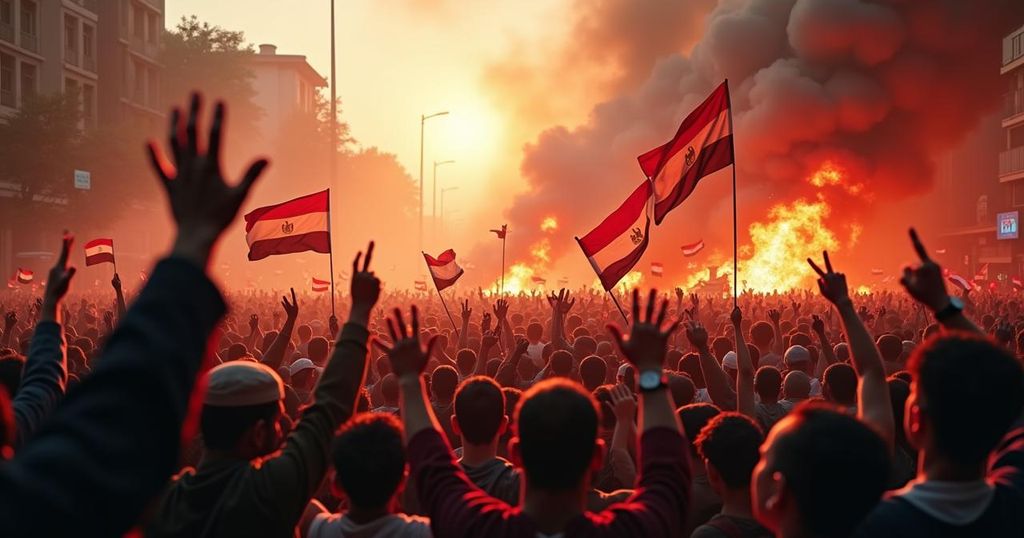The Rise and Fall of the Muslim Brotherhood in Egypt
The Muslim Brotherhood’s journey from a supportive role in the 2011 protests against Mubarak to prominent electoral success and eventual military ousting in 2013 reflects the turbulent political landscape in Egypt. Their establishment of the Freedom and Justice Party led to a significant share of parliamentary seats and the presidency under Mohammed Morsi. However, faced with mounting opposition and governance challenges, the military intervened, leading to a crackdown on the Brotherhood, officially designating it as a terrorist organization and imposing extensive legal penalties on its members.
In January 2011, a nonreligious youth protest movement emerged in Egypt, aimed at challenging the long-standing regime of President Hosni Mubarak. The Muslim Brotherhood, initially hesitant, eventually rallied behind the protests, leading to Mubarak’s abdication in February. This shift provided the Brotherhood with the opportunity to engage actively in politics, albeit at first, they expressed caution about seeking a majority in the legislature or fielding a presidential candidate. However, the situation evolved when they founded the Freedom and Justice Party in April 2011, which received official recognition in June and soon achieved notable electoral success, securing approximately 47 percent of the seats in the People’s Assembly between late 2011 and early 2012. Despite initial promises, the Brotherhood eventually nominated Khairat al-Shater for the presidency in early 2012, only to see him disqualified due to prior convictions. Mohammed Morsi, previously the head of the Freedom and Justice Party and Shater’s replacement, emerged victorious in the presidential election held in June 2012. Morsi’s administration, however, faced significant criticism and opposition stemming from economic issues and governance challenges. On July 3, 2013, amid mounting protests, the military intervened, deposing Morsi and establishing a transitional government. The subsequent crackdown on the Muslim Brotherhood included widespread arrests, a media blackout, and violent suppression of protests, marked notably by the tragic incidents at Rabaa al-Adawiya Mosque in August 2013, which resulted in over a thousand deaths. In September 2013, the Brotherhood was designated a terrorist organization by the Egyptian government, further entrenching their legal and operational challenges as ongoing mass trials led to severe sentences for members and supporters alike, reflecting a broader strategy to eliminate the group from Egypt’s political landscape.
The Muslim Brotherhood, founded in 1928 in Egypt, has played a significant role in Middle Eastern politics as one of the most influential Islamist movements. The period of political upheaval beginning in 2011 marked a critical juncture for the group. Following the Arab Spring, the Brotherhood not only participated in protests but also successfully transitioned into a legitimate political party. However, their approach to governance and leadership raised concerns among various factions within Egyptian society, which ultimately culminated in a military coup in 2013, leading to severe repercussions for the organization and its affiliates. This historical context is crucial to understanding the subsequent violence, repression, and the international implications of the Brotherhood’s evolution.
The rise and fall of the Muslim Brotherhood in recent Egyptian history underline the complexities of navigating political power within a diverse society. From initial involvement in the 2011 protests to securing significant electoral victories, the Brotherhood’s assertive attempt to claim leadership ended in upheaval and crackdown, resulting in their designation as a terrorist organization. The state-led response to Morsi’s presidency illustrates the precarious balance between political aspirations and the realities of governance amid civil discontent. As the organization continues to face suppression, its future remains uncertain in a landscape marked by ongoing strife and conflict.
Original Source: www.britannica.com




Post Comment